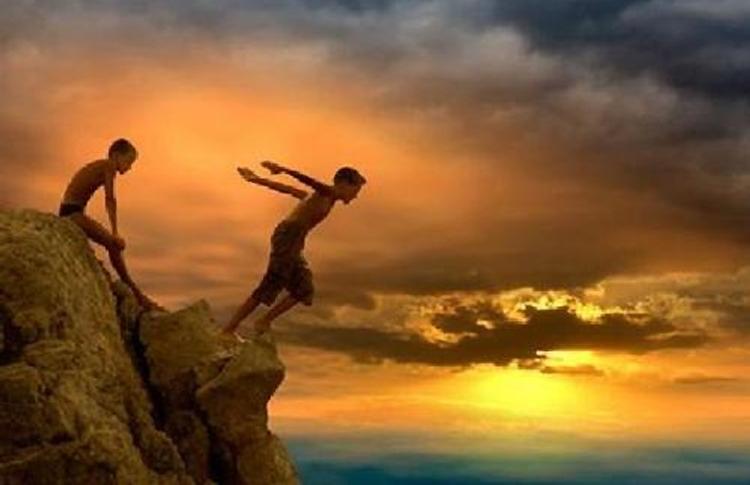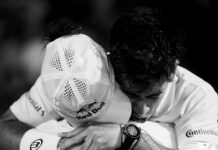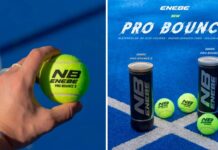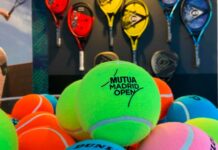Just a few days ago, World Padel Tour confirmed the launch of the Challenger Tournaments, a new format aimed, in particular, to take care of the development and growth of the future stars of this sport. If we look back, we will see how three years ago, Miguel Matía told us about the situation of the promises and how complicated they were to make the leap to the professional world. Then we leave you with your thoughts.
Padel World Press .- In the first installment of this article, we will rescue a content that caught our attention the first time we read it. From your Blog on the page 'My Prof of Paddle'Miguel Matía gave us his vision on a topic that has been talked about a lot in all the social gatherings: the difficult and complicated passage of young people from the Categories of Minors to the Professional Circuit.
Now, before the new panorama that opens with the arrival of the Challenger Tournaments, we wanted to unearth this text from the trunk of the memories to, with perspective, see which of the things that Miguel told us in his day have been fulfilled and which ones have not .
If you like paddle tennis, this is one of those recommended and almost compulsory readings ... ¡¡¡¡¡¡¡¡Enjoy it!
"More P @ del, better padel, more vertical, faster, etc, but ... not for tricky is less certain that the consequences still suffer those 'small' or 'minor' talented and aspiring players: the great length of the jump, the enormous distance, sidereal speed, height, distance from the professional world, the jump to the emptiness.
It continues to hurt to see, day by day, players with enormous talent and with years of training feel how paddle tennis 'abandons' them as they approach the professional zone by age and game, but especially by age. It's difficult to understand that brutal jump between the top 15-20 and the rest. It is not that it is difficult to get there; is that they play another sport.
Hundreds of players today continue to suffer from this crisis and observers continue to ask ourselves the obvious: Why and even when ...
Both questions have simple answers from my point of view. In this first installment, we will focus on the Why:
Basically the Pádel-Pro is based, precisely, on a very elongated professionalism in which players from 35 years (in some cases up to 40) remain in the elite, based on speed and decision-making and terrifying ball, as well as , in short, in very different playing conditions.
The fledgling or lack of maturity (a fundamental condition for an indispensable natural selection that accumulates a large group of players) of this sport in Spain affects not only the lack of Pros but also the intermediate mass in the 'factories' of players and clubs where children have the facilities, have clear references and begin to want to be paddle tennis players ... But they do not have the appropriate coaches at early ages, they do not have the necessary follow-up and, of course, they cannot enjoy any system of Scholarships and of reinforcements and economic and structural support. All of this slowly but steadily affects the development of the player.
If we observe that the Regional and National Circuits (obtusely contested with coaches, players and Pros Circuits) do not just find the path that aligns or associates with the latest tendencies and with the new airs of the World Paddle Circuit, and therefore of its professionals, and the remedial but current lack of economic incentive for the professional, it is not surprising that the natural and cruel selection of the paddle has made, along the way, they have remained what could have been the 'area or class media 'or, what is the same, the intermediate part between those who are arriving and those who are already.
They would be something like a 'Super Class B', which would greatly enrich the competition, provide a more reasonable transition between semi-amateurism and top professionalism as well as a timming more in line with the experience of a minor in its evolution that, in any case, is prepared to go from winning almost everything to lose outright without any option, without the time of adaptation to the speed and characteristics of the specific game Pro and, therefore, with little chance of adjusting their game , tactics, resources, plays, blows, evaluation of the game, analysis of the opponent and an endless endless consequences that directly influence the development of an athlete of any discipline ... Imagine also the difficulty of a game of a couple.
Traditionally, the difference in level so clear to the Argentine origins of the paddle or to the specific idiosyncrasy of the charrúa (as if they were chosen for this sport) has always been blamed. Frankly I do not believe in it and although it is true that his dedication to paddle has been greater, and therefore have been competing for more time, and that they enjoy a commendable winning spirit is not less true that can not be this alone reason to explain lack of average zone or adaptation to Pro game.
And I have not yet entered the economic part ... Nor will I enter today. Suffice it to say that there are no scholarships or sponsor support to players-promise and that the economic benefit does not go beyond a beautiful experience that can serve as a future professional performance (on second thought, in the current times this is not a small thing, but it is not enough) ... The costs of training, material, physical preparation, travel and medical treatment are still those of any professional sport.
Miguel Matía. "
* You can follow all the news of the world of paddle in our profiles of Facebook y Twitter as well as subscribe to our Newsletter .














